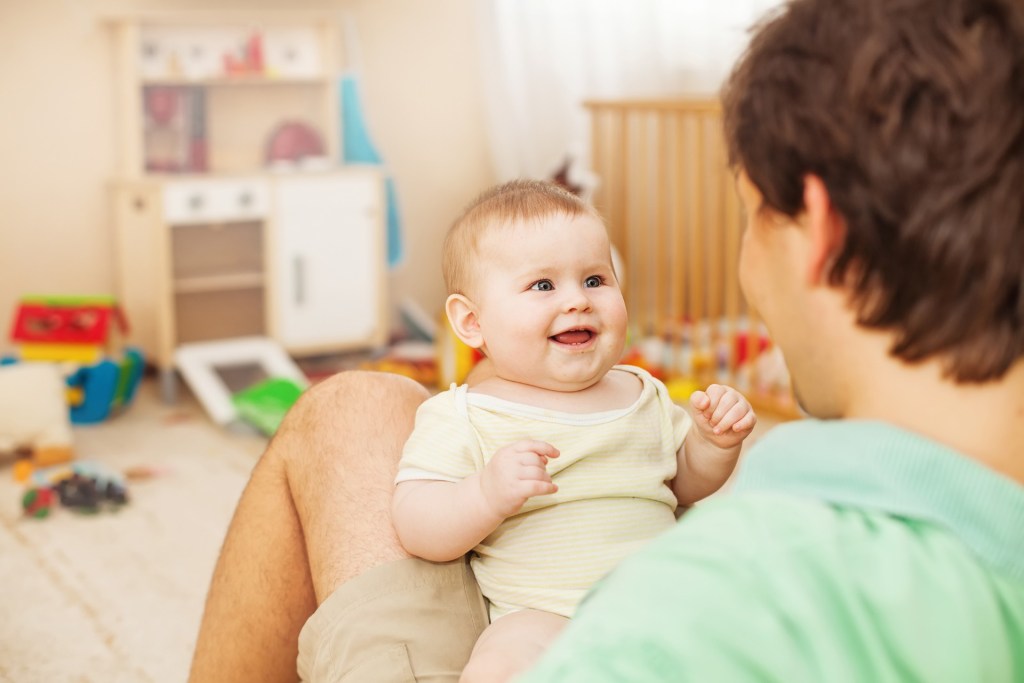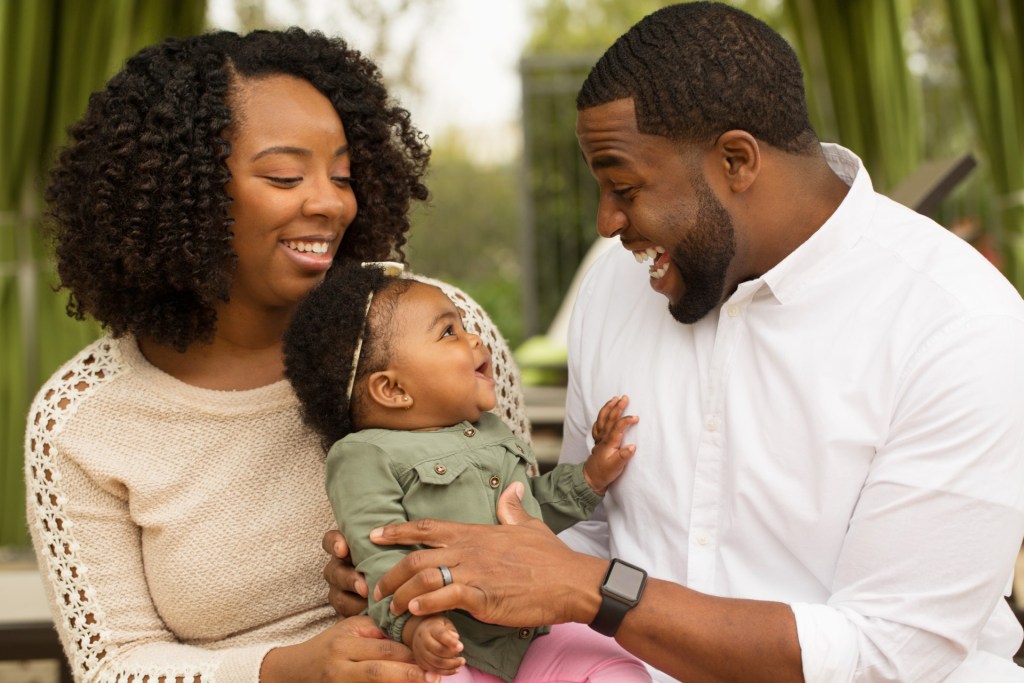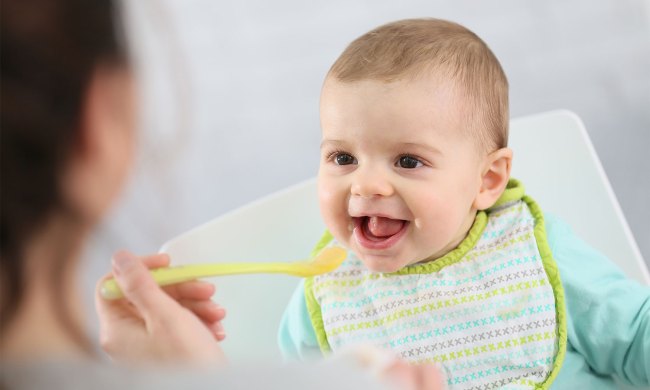One of your biggest questions as your baby develops is what the first words will be. Encouraging your baby to talk can be a fun way to build language and bond a bit. It’s time to get creative with your language activities and have some fun at the same time.
Language activities don’t have to be complicated. Your baby is soaking up knowledge every single day just by being around you. These four fun activities can be a great way to encourage language learning and ensure that your baby has the best start possible.

What’s happening now?
You may feel a little silly telling your baby exactly what you’re doing, but it’s a meaningful way to provide language input. “I’m taking the laundry to the laundry room. I’m putting shirts in the washing machine.” As you talk to your baby all day about what’s happening, they’re listening and learning.
Telling your baby about what’s happening as you’re doing it helps remove the pressure from what to say. Your baby’s development requires input and interaction from your own conversation, but it’s less about the words and more about the interaction.
Talking about what you’re doing in the moment also provides concrete language exposure. The baby learns to associate words with certain things like “laundry” or “shirt.” This input helps your baby connect language to the concept of expression.
The constant language exposure encourages your baby to begin forming words and understand your native language’s overall structure. Research shows that the more interaction a child has with language, the better the start.
Have playdates
Even if your baby isn’t talking yet, being around other kids can provide language input, too. Not only do babies get to talk to other adults and listen to adults talking to each other, but they also get to interact with other kids.
This range of interactions is an essential part of learning to communicate. As your babies interact, you have the chance to talk about what’s going on and get excited with however they communicate.
This helps make communication fun. Encourage language development by test-driving vocabulary with other babies and by helping them to put things into words — i.e., “She’s leaving. Say bye-bye!”
Word strings
When babies do begin to talk, it’s a simple word or two. Often, it’s merely an object and some action. Encourage babies to continue communicating by adding words to what your baby says.
For example, if your baby says “dog,” add a word or two to complete a sentence — “Pet the dog.” This helps your child not only associate words to specific things, but it expands the concepts altogether.
Your baby will begin to associate sentence structure with communication. This is a straightforward way to help your child expand vocabulary using words as stepping stones.
Use plenty of singing
Babies love interacting with the natural rhythm and pitch of singing. Simple songs that rhyme is a great place to start. Your baby can sing along in their own way and build vocabulary as they master it.
These songs must come from you. While toys, television, and apps can augment the process, the best source of learning comes from real human voices. The more one-on-one time they get with you, family, and friends, the better this learning happens.
Try varying the songs, pitches, and even the voices that you do. Your child can imitate the sound and the voices, getting practice with different pitches. Teach your child songs with lots of different sounds and rhymes, but simple enough for a baby to imitate.
Tips for encouraging language
Here are a few things to keep in mind as your baby begins to take the first steps toward talking:
• Don’t correct — Your baby may not get words right, but it’s essential to respond to the context. It could be helpful to repeat what your child says to confirm and encourage, but it should come from a place of interaction.
• Use real words — Your child may have a special name for the blanket or favorite teddy bear, but using real words instead of baby talk for things is key. Your child is developing an understanding of shared language; real words encourage that learning.
• Make it fun — As long as you and your child are having fun together, the chance for interaction will happen naturally. Language is essential, and the more real human input your child gets, the better. To achieve the perfect balance between enjoyment and learning, you may want to try some speech therapy games for children.

Learning to speak
Each baby is different, and language will happen on a unique timeline. Cherish those first little sounds that turn into words and give your baby the best chance to learn to communicate. With the right games and a whole lot of one-on-one time with you, your baby could be babbling into sentences in no time.
Teach your baby to talk just by being present and interacting. The very games that send your baby squealing into laughter could be just the thing your baby needs to begin those first few words. It’s a wonderful process.


